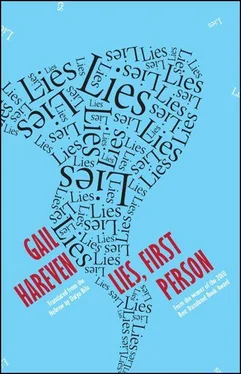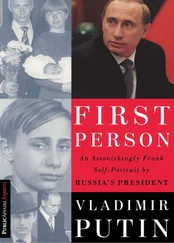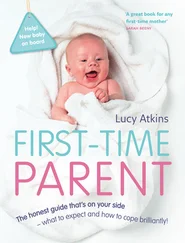Menachem spoke to whomever he spoke to, sent off the material, and that same week I met the person who was then the culture editor of The Jerusalemite and explained the “gimmick” to him. As if I had intended a gimmick from the outset: Alice as a kind of reporter. She goes to real places in the city and interviews people, but her reports on them are only half true, and both of us are free to add fictional characters and fictional elements as the fancy strikes us.
Like Chemi, the editor too used words like “fresh” and “authentic.” But at the same time he wondered about the possibility of libel suits. I promised him that there was nothing to worry about and that no such situation would come up. It wouldn’t come up because the enthralled Alice saw nothing but good, and there was no way that anyone would be offended by her descriptions. In fact the opposite would probably happen: Alice would make the people she met see themselves as colorful characters and rejoice in the colorfulness of the world.
What I said without giving it much thought turned out to be true. In all her explorations of the city, innocently delighting in Jerusalem and all its inhabitants, Alice never offended or insulted a single soul. And something else happened too, which neither the editor nor I myself anticipated: over the years Alice acquired a circle of fans who set out to follow in her footsteps, curious to meet the people she had met and to find the charm she had found, mixing the facts with the fiction in her stories. Did the embroiderers of the curtains in the Armenian Patriarchy really sing like angels as they worked? Had “Mister Soup”’s green soup really been served at the table of the King of Morocco? Did the stammering seller of textiles in Davidka Square really hide pearls of ancient wisdom among her broken words, and did a descendent of the House of Romanov really get on the number four bus to Mount Scopus every morning? And perhaps only Alice found wisdom, and only she recognized royal features on the face of an old woman with her head wrapped in a scarf?
It took eight columns for Alice to find her first apartment, and in all her searches she never tired of basking in colorfulness and wallowing in wide-eyed delight. A grumpy Kurdish wizard accompanied by a pack of stray cats offered her a room on Agrippas Street. A tamer of hawks, working as a peddler of soap in the market, tried to deter her from taking it.
She met a pair of giggling circus twins who enjoyed having a laugh with relatives who had departed this world, and a poker player smelling of mothballs who was practicing how to die without batting an eyelash — and every one of them, every single one, was a wonder in her eyes. Even the one-eyed organ tuner who tried to steal her galoshes.
All of them butterflies on the lawn, songbirds in the trees, the glitter of gold in the sunshine. Great is the garden of God, tweet-tweet, and wonderful are his creatures.
If I had taken her to my parents’ home and allowed her to open her mouth about it, Alice would long ago have painted me a portrait of a “colorful childhood experience.”
A modest family hotel in the neighborhood of Beit Hakerem, referred to by the father of the family as “my little Switzerland,” two stories surrounded by pine trees, their scent filling the rooms. And who lives there? A father and mother and two daughters. Two little dolls. The elder blonde, the younger brunette, the former slow and the latter quick.
The mother’s heart is weak, she spends most of her days in bed or in the little reception office, which is also suffused by a resinous scent. On the office walls hang landscapes and cityscapes — given by artist guests as mementos to the proprietors, who are happy to point them out and mention the names of the many artists and intellectuals who return year after year to their modest hostelry.
A Jesuit priest comes every summer to take part in archeological digs and teaches the younger daughter to play chess.
“The child is ripe for intellectual development,” avers the scholar. “Ripe, ripe” concurs the father.
A Yiddish singer affectionately powders the nose of the giggling elder sister as the younger brings a cup of tea to the singer’s room, and even gives the child a lilac perfume bottle in the shape of swan.
A pair of Belgian birdwatchers teach the little girls to look up at the sky. The young man’s finger on his lips, signaling silence, the young woman’s finger points upward. Their identical noses are sharp, as are their identical chins, and they both wear the same round, gold-rimmed glasses. Behind their backs the girls call them “the twins” and laugh.
A cloth cap on his head, the lock plastered to his forehead pointing like an arrow to one black eye, Shaya Gotthilf stands in the little kitchen and flourishes the omelet pan like a paintbrush. Fate and the need to earn a living have made him a hotel proprietor, and once in possession of the establishment he also gave it his name, but Shaya looks more like an artist or a scholar than a service provider.
An observer less inclined to enthuse herself than Alice would have pointed out that, when it came to service, Pension Gotthilf did not always meet conventional expectations — and that’s putting it mildly. The omelet is fried in the cheapest oil, the chrysanthemums in the Armenian pottery vases should have been thrown out the day before yesterday, and the feel of the bed linen testifies to a long life and many launderings. The Arab maid in her embroidered dress does not clean well, and from time to time, when due to confusion or illness or some other temporary difficulty the mother forgets to pay her, Jamilla does not come to work at all. The dark-haired daughter rebels. The fair-haired one smiles her slow smile and languidly pushes the vacuum cleaner about, without reaching underneath the radiators that give off a weak heat.
You won’t find luxury here — Alice would say — but the place has atmosphere. There is something about the house that closes one’s eyelids like honey and invites all who enter it to daydream. And it seems as if the daydreams of the guests did not leave with them, but are still stirring between the stones: the dreams of those who came to Jerusalem to dig up the treasures of her kings and Temple, of those who came to find in it a crown for themselves, and those who sought to redeem it.
Squeals of laughter from the little girls in the courtyard. A deaf-mute acrobat is teaching them to catch and throw a ball blindfolded. The older girl’s eyes are covered with a red scarf, the younger refused the blindfold but keeps her eyes closed and doesn’t cheat. The pealing of church bells is heard in the distance and mingles with the closer chimes of the old grandfather clock in the library. Hundreds of volumes are collected in Shaya’s library, available to anyone who wishes to consult them, and the girls’ father would fix his eyes on whoever entered the room, as if he wanted to etch the picture of a person holding a book on his heart.
“My foundlings,” Shaya calls his books, which for the most part were picked up after being thrown out in the street. Volumes in Hebrew, English, French, Russian, German, Hungarian, Romanian, Polish, and Serbian. Volumes in brown, gold-lettered covers in languages unknown to their loving owner, who could not bear the sight of a book abandoned in the street because its owner had died. “With me at least they have a home,” says Shaya, a solemn note in his voice. The hand of fate sent a refugee child, his mother’s only son, to Palestine. A great love for an exquisite Jerusalem beauty set him down in this house in its bower of greenery. But the same hand might have acted differently, and it’s easy to imagine a different Shaya: Shaya Gotthilf of Manhattan, sharp-witted journalist and thinker; Shaya Gotthilf the Dutchman; Shaya the painter; Professor Shaya Gotthilf expounding his wide-ranging views from coast to coast in America, often invited as well to the capital cities of Europe. Shaya has a rich imagination, he could easily see himself in any of these incarnations. And even though he does not elaborate on them, Alice reads his fantasies, swallows his illusions whole, and enthuses:
Читать дальше












